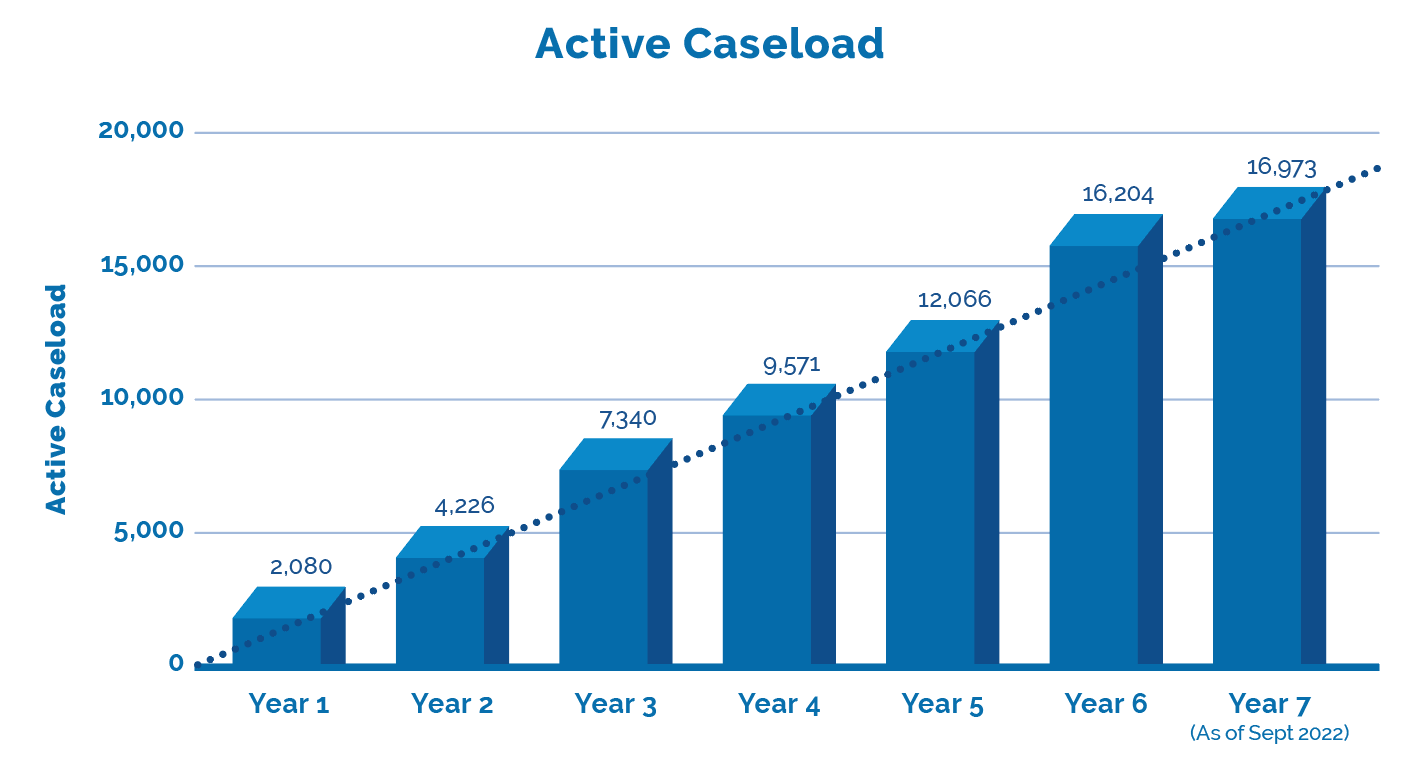
MIG Update – June 19, 2023
Despite Improved Diagnostic Scores, Still a Psych Injury
This week a MIG escape case where the Tribunal considered two somewhat competing opinions regarding a psychological diagnosis that were rendered 3 months apart. In the time span in between the applicant’s symptoms improved with treatment which accounted for the improved diagnostic scores. Read on to review the considerations utilized by the Tribunal.
LAT Update – What Difference Did A Year Make?

The LAT released Performance Stats up to mid-year 7 which is current through to the end of September 2022. Together with the LAT’s last update we can now provide a comparison of year over year, with projections through to the end of year 7 in this annual update. What difference did a year make?
Factor: Improved Diagnostic Scores – Still a Psych Injury
In Chan v. Unifund Assurance Company (21-004665), Chan was injured in an accident on February 21, 2019 and sought medical benefits for psychological assessment, psychological treatment and chiropractic services beyond the MIG.
Chan relied on the psychological assessment and report dated May 27, 2019 of Dr. Mrahar who diagnosed Chan with Adjustment Disorder with Mixed Anxiety and Depressed Mood. Chan had reported he experienced back pain, low mood, low motivation, fatigue, disturbed sleep, irritability, and driving anxiety. In her report Dr. Mrahar noted that adjustment disorder is defined as “subjective distress and emotional disturbance, usually interfering with social functioning and performance, arising in the period of adaptation to a significant life change or a stressful life event.”
Unifund relies on the psychological IE conducted on August 10, 2019 by Dr. M. Schwartz, who opined that Chan had some issues relating to driving anxiety, but these symptoms did not warrant a psychological diagnosis or rise to the level of a psychological impairment. Dr. Schwartz disagreed with Dr. Mrahar’s diagnosis because Chan reported milder symptoms and scored lower on the same diagnostic tests.
Unifund further argued that Chan’s subjective complaints should not be accepted as they were inconsistent across both reports in such close proximity to one another and as such lacked credibility.

The Tribunal found:
- Dr. Mrahar’s and Dr. Schwartz’s findings are consistent given they were 3 months apart. “Taken together, their reports indicate that the applicant developed an adjustment disorder that attenuated over time as his pain subsided and he returned closer to his pre-accident lifestyle.”
- In May 2019 Dr. Mrahar reported Chan scored in the range for moderately severe depressive symptoms on the Beck Depression Inventory, and in the average range for pain patients on the depression, anxiety, and somatization scales of the Pain Patient Profile.
- In August 2019 Chan scored in the minimal range on both the Beck Disability Inventory and below average on the 3 scales of the Pain Patient Profile. “Dr. Schwartz stated that the Personality Assessment Inventory (“PAI”) should be reviewed with caution because his responses to similar items were somewhat inconsistent.”
- Dr. Schwarz did not deny that Chan had the symptoms he reported to Dr. Mrahar, but found that they were milder based on the information Chan provided to him. Dr. Schwarz did not express any concerns about malingering.
- The test screening for symptom exaggeration did not indicate any over-endorsement of emotional or cognitive problems.
- Given Chan’s improvement it was unsurprising that the diagnostic testing scores were lower in the Schwarz report and that Chan was unsure about further treatment.
- The family doctor’s records focused on the back complaints. It didn’t mean the mental health issues were not discussed. As such was not prepared to infer that the mental health issues did not exist.
- Chan sustained a psychological impairment as a result of the accident. The psychological assessment was warranted. However, the 16 sessions recommended by Dr. Mrahar was not and Chan was only entitled to the 4 sessions he incurred between June 2019 and January 2020.
If you Have Read This Far…
Our MIG Monday series discusses the multitude of factors to consider when evaluating a risk position on MIG cases. The Tribunal has ruled on the MIG in 24% of the decisions so far. Each case is nuanced, but with similar factors.
Inform your position & present persuasive arguments. Include an Outcome Analysis Report (OAR) in your case evaluation complete with For/Against cases. Need an OAR?
inHEALTH Keeps you LAT inFORMED With Access To:
1. LAT Compendium Database – a relational database of LAT and Divisional Court Decisions equipped with multiple search options, Smart Filters, and concise case summaries
2. Notifications: – weekly LAT inFORMER delivered to your inbox Wednesdays; Newly Added Decisions on Fridays and Breaking News as and when it happens
3. Research Support: – inHEALTH’s Live Chat Experts for guided searches and technical inquiries.
Sign up for a 14 day free trial below to experience the service and see how it can help guide your decision making.